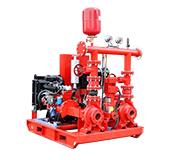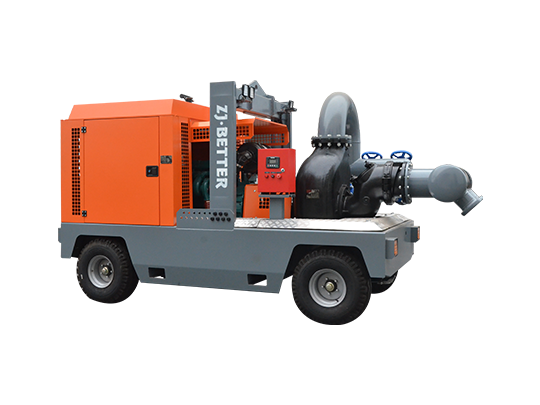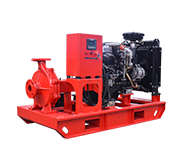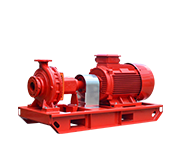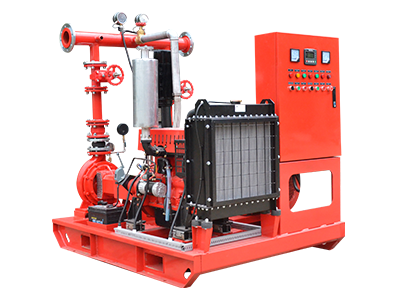- Fire Pump System
-
- UL-Listed Fire Pump SetEDJ End Suction Fire Pump SetEDJ Fire Pump SetEJ Small Flow Fire Pump SetFire Pump PackagesContainerized fire pump setDiesel Fire Pump SetED Small fire pump setElectric Jockey Fire Pump SetFire Pump Set with Jockey PumpFire Pump SystemSplit Case Fire Pump SetMutistage EDJ Fire Pump SetDiesel Fire Pump Set with Jockey PumpFire Fighting Pump SystemElectric Diesel Jockey Fire Pump SetFire Fighting Pump Set with Jockey PumpSmall Capacity Electric Fire Pump SetDJ Fire Pump Set with Jockey PumpEJ Fire Pump SetED Fire Pump Set (Electric+Diesel pump)Diesel Engine Fire Pump SetDiesel Fire Jockey PumpSmall Fire Pump SetEDJ Fire Pump SystemFire Water Pump SetFire Pump AssemblyDJ Small Flow Fire Pump SetCummins Engine Fire Pump Set
- Mobile Pump Unit
-
- Split Case Series Mobile Pump TruckSelf Priming Series Mobile Pump TruckCentrifugal diesel driven dewatering pumps open frame trailerFlow-mixing Mobile Pump TruckFlow-mixing Mobile Pump TruckManure Pump TruckP12 modle mobile Pump truckP10 Modle Mobile Pump Truck1000m³Self Priming Series Mobile Pump TruckLarge Flow Non-Clogging Mobile Fire Pump TrailerTrailer Mounted Fire PumpFire Emergency Mobile Pump TruckDiesel Engine Emergency Mobile Trailer Pump
- Diesel Fire Pump
-
- UL Listed Diesel End Suction Fire PumpXBC-S Diesel Split Case Fire PumpXBC-IS Diesel End Suction Fire PumpXBC-D Diesel Multistage Fire PumpVertical Turbine Diesel Engine Fire PumpDiesel Engine Single-Stage Centrifugal PumpXBC-IS Diesel End Suction Fire Fighting PumpXBC-S Diesel Engine Split Case Fire PumpDiesel Engine End Suction Fire PumpXBC-IS Diesel End Suction Fire PumpsZWC Diesel Engine Self Priming Pump for IrrigationDiesel Engine End Suction Fire Fighting PumpXBC-S Heat Exchange Diesel End Suction Fire PumpXBC-XA Diesel Engine End Suction Fire PumpXBC-IS Diesel Engine Fire PumpDiesel Engine End Suction Fire PumpXBC-IS Diesel Engine End Suction Fire PumpXBC-ISO Diesel Fire Fighting PumpPortable Fire PumpFire Booster Pump

Email: zjbetter@119pump.com
Tel:+86 15336708022(Gloria) +86 13306708055 (Ivy) +86 13357006058 (Serena) +86 13357022877 (Wendy) +86 17757009882(Kate)
Fax:0086-570-3010238
-
How do fire pumps address noise concerns in residential or commercial areas?
Fire pumps, especially those installed in residential or commercial areas, must address noise concerns to avoid disturbing occupants. This can be achieved through the use of soundproof enclosures, vibration dampening mounts, and quieter pump designs. Additionally, proper placement away from noise-sensitive areas and regular maintenance to ensure the pump operates smoothly can further reduce noise levels, making the system less intrusive.
View more +
-
What is the role of fire pump acceptance testing in compliance?
Fire pump acceptance testing is a critical part of ensuring that the installed system meets all regulatory and performance standards. This testing involves running the pump under various conditions to verify that it delivers the required flow and pressure, responds correctly to alarms, and functions as intended in an emergency. Successful acceptance testing is necessary for obtaining final approval from fire authorities and certifying the system's compliance with local and national codes.
View more +
-
How do fire pumps interact with municipal water supply systems?
Fire pumps are often connected to municipal water supply systems, where they play a crucial role in boosting water pressure for fire protection. The interaction between the pump and the municipal system must be carefully managed to avoid issues such as backflow, pressure drops, or water hammer. Properly designed backflow preventers, pressure relief valves, and control systems ensure that the fire pump operates seamlessly with the municipal supply, providing reliable fire protection without compromising the public water system.
View more +
-
What role do jockey pumps play in minimizing water hammer effects?
Water hammer, a surge of pressure caused when a fluid in motion is forced to stop or change direction suddenly, can be damaging to fire protection systems. Jockey pumps help prevent water hammer by maintaining consistent system pressure, reducing the likelihood of sudden pressure spikes. Properly controlled jockey pump operation, with gradual pressure adjustments, also contributes to minimizing water hammer effects.
View more +
-
What role do jockey pumps play in minimizing water hammer effects?
Water hammer, a surge of pressure caused when a fluid in motion is forced to stop or change direction suddenly, can be damaging to fire protection systems. Jockey pumps help prevent water hammer by maintaining consistent system pressure, reducing the likelihood of sudden pressure spikes. Properly controlled jockey pump operation, with gradual pressure adjustments, also contributes to minimizing water hammer effects.
View more +
-
How do jockey pumps help in maintaining the integrity of fire protection systems in corrosive environments?
In corrosive environments, such as industrial plants or coastal areas, jockey pumps play a vital role in maintaining system integrity by keeping the fire protection system pressurized. This minimizes the risk of leaks or corrosion within the piping network. Additionally, jockey pumps and associated components may be constructed from corrosion-resistant materials like stainless steel or coated with special protective layers to withstand harsh conditions.
View more +
-
How do fire pumps handle redundant systems in critical facilities?
In critical facilities like hospitals, data centers, and power plants, redundant fire pump systems are often installed to ensure continuous protection. These systems may include multiple fire pumps configured in parallel, so if one pump fails, the others can automatically take over, ensuring that fire protection is never compromised.
View more +
-
How do fire pumps support industrial fire brigades in large manufacturing plants?
In large manufacturing plants, on-site industrial fire brigades rely on fire pumps to supply water to high-risk areas where fires could have severe consequences. These pumps are integrated into the plant's fire protection strategy, ensuring rapid and effective response times. They often work in conjunction with specialized firefighting equipment, such as foam systems or high-volume monitors.
View more +
-
How do fire pumps handle emergency scenarios with multiple alarms?
In complex fire protection systems, fire pumps may be connected to multiple alarm zones. When an alarm is triggered, the fire pump is designed to start immediately to ensure that water is available wherever it is needed. Advanced systems can prioritize alarms or activate multiple pumps to respond to different areas simultaneously, ensuring comprehensive coverage.
View more +
-
What are the benefits of using a vertical turbine fire pump?
Vertical turbine fire pumps are ideal for applications where water must be drawn from deep wells or reservoirs. They are highly efficient for high-lift scenarios and can be configured to handle large volumes of water. Their vertical design also saves space and allows for easy maintenance access in confined areas.
View more +
-
How does the design of a fire pump system accommodate future building expansions?
Fire pump systems can be designed with future expansions in mind by sizing the pumps and piping to handle increased water demand. Additionally, provisions for easy upgrades, such as adding extra pumps or expanding capacity, can be incorporated into the initial design.
View more +
-
How does the design of a fire pump system accommodate future building expansions?
Fire pump systems can be designed with future expansions in mind by sizing the pumps and piping to handle increased water demand. Additionally, provisions for easy upgrades, such as adding extra pumps or expanding capacity, can be incorporated into the initial design.
View more +
-
What impact does water quality have on fire pump operation and longevity?
Water quality can significantly impact the operation and longevity of fire pumps. Corrosive water, high levels of sediment, or other contaminants can cause damage to the pump's internal components, leading to increased maintenance needs and potential failure. Water treatment or filtration may be necessary in some cases.
View more +
-
How are fire pumps tested in facilities with continuous operations?
In facilities with continuous operations, such as hospitals or manufacturing plants, fire pump testing must be carefully scheduled to minimize disruption. This may involve conducting tests during off-peak hours, using temporary water sources, or coordinating with facility management to ensure that essential services remain operational during testing.
View more +
-
What is the role of fire pumps in protecting critical infrastructure?
Fire pumps play a vital role in protecting critical infrastructure, such as power plants, water treatment facilities, and telecommunications hubs. These facilities require robust and reliable fire protection systems, and fire pumps are essential to ensuring that adequate water pressure and flow are available to suppress fires quickly and effectively.
View more +
-
What impact does water quality have on fire pump operation and longevity?
Water quality can significantly impact the operation and longevity of fire pumps. Corrosive water, high levels of sediment, or other contaminants can cause damage to the pump's internal components, leading to increased maintenance needs and potential failure. Water treatment or filtration may be necessary in some cases.
View more +
-
What considerations are necessary for the electrical installation of fire pumps?
Fire pump electrical installations must comply with local codes and standards, including the use of dedicated circuits, emergency power sources, and surge protection. The electrical system should be robust enough to handle the fire pump's startup current, which can be significantly higher than its running current.
View more +
-
How do environmental conditions affect fire pump performance?
Extreme temperatures, humidity, and corrosive environments can impact fire pump performance. Proper housing, insulation, and corrosion-resistant materials are necessary to protect pumps and ensure reliable operation.
View more +
-
What is the role of a fire pump controller?
A fire pump controller manages the operation of the fire pump, including starting, stopping, and monitoring performance. It ensures the pump operates correctly during an emergency and complies with NFPA 20 requirements.
View more +
-
What is a fire pump churn test, and why is it important?
A churn test involves running the fire pump without discharging water to ensure it starts and runs correctly. It is important for verifying the pump’s operational readiness and identifying potential issues that need maintenance.
View more +
-
What are the advantages of using a variable speed jockey pump?
Variable speed jockey pumps adjust their operation based on system pressure requirements, providing more precise control, reducing wear and tear, and improving energy efficiency compared to fixed-speed pumps.
View more +
-
What are the common causes of fire pump failure during an emergency?
Common causes include power supply issues, mechanical failures, improper maintenance, and incorrect installation. Regular testing and adherence to maintenance schedules are crucial to prevent failures.
View more +
-
What are the common causes of fire pump failure during an emergency?
Common causes include power supply issues, mechanical failures, improper maintenance, and incorrect installation. Regular testing and adherence to maintenance schedules are crucial to prevent failures.
View more +
-
What are the common causes of fire pump failure during an emergency?
Common causes include power supply issues, mechanical failures, improper maintenance, and incorrect installation. Regular testing and adherence to maintenance schedules are crucial to prevent failures.
View more +
-
What are the common causes of fire pump failure during an emergency?
Common causes include power supply issues, mechanical failures, improper maintenance, and incorrect installation. Regular testing and adherence to maintenance schedules are crucial to prevent failures.
View more +

